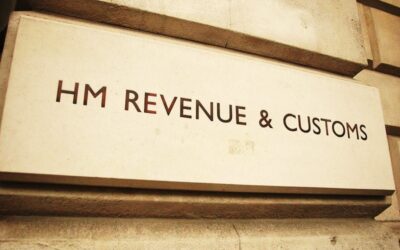The deal
TaxWatch has written to the Public Accounts Committee (PAC), the National Audit Office, and the Treasury Committee, requesting that inquiries be held into an out of court settlement between HMRC and General Electric (GE).
Following a lengthy tax dispute regarding a tax avoidance scheme that saw billions of dollars transferred around the world, it was revealed in the trade press on 15 September that the two parties had reached an out of court settlement, with HMRC settling for a deal that involved no cash payment and just £82m added to GE’s deferred tax charge, and agreeing that there had been no wrongdoing by GE.
GE revealed in their 2020 accounts that if HMRC were successful in their claim, they could face a liability of $1.1bn, before accounting for interest and penalties, stating:
The United Kingdom tax authorities disallowed interest deductions claimed by GE Capital for the years 2004-2015 that could result in a potential impact of approximately $1.1 billion, which includes a possible assessment of tax and reduction of deferred tax assets, not including interest and penalties.1
Civil penalties for the deliberate non-payment of tax can be up to 100% of the tax owed, doubling the potential liability.
A GE spokesperson said the company is “pleased to have reached an agreement with the U.K. tax authority, resolving this dispute in its entirety with no fault attributed to either party.” The spokesperson added that “as part of the settlement, GE has agreed to a reduction of interest expense that results in a deferred tax charge in discontinued operations of about 10 percent of the potential impact previously disclosed in [its] filings.”2 [emphasis added]
The All Party Parliamentary Group on Anti-Corruption & Responsible Tax took to Twitter to criticise HMRC, stating that “Sweetheart deals like this one see the taxpayer lose out on millions in lost tax revenue.” HMRC’s press office responded to the tweets, stating that “HMRC does not do sweetheart deals. All settlements must be fully in line with the Litigation and Settlement Strategy.”


Although HMRC are claiming that this is the best outcome they could have expected, given the seriousness of the allegations, the deal raises a number of questions as to how HMRC ended up settling for such a small amount.
The case
As detailed in our report, Around the world with $5bn, GE moved $5bn between the US, Luxembourg, the UK & Australia in just four days as part of a complex “hybrid arbitrage” tax avoidance scheme, that allegedly generated a tax benefit for GE in the UK of up to £760m over a period of 10 years.3 These multi-billion dollar transactions allowed GE to claim deductions against tax in three different jurisdictions – a so-called “triple dip” scheme.
The UK has long had rules in place to prevent these kinds of schemes from having any effect. However, in this case HMRC cleared the transactions and agreed that it would not apply anti-avoidance legislation after receiving assurances from GE that the structure was not designed to avoid UK taxation, and that any tax benefit arose in Australia. However, after receiving information from the Australian Tax Office, which revealed that GE had told the ATO that the scheme was designed to avoid taxation in the UK, HMRC started proceedings against GE in the High Court asking the court to annul the agreement on the ground that GE’s failure to inform them of the nature of the scheme amounted to misrepresentation. Although the allegations included doctored documents by GE, initially HMRC argued that GE’s failure to inform them of the nature of the deal amounted to an innocent misrepresentation. Later, HMRC sought to change their claim to allege fraudulent misrepresentation.
In April, HMRC suffered a setback in their case when the Court of Appeal found that the tax authority had run out of time to bring their claim under the Limitation Act 1980. HMRC applied to the Supreme Court for permission to appeal the decision of the Court of Appeal.
In support of HMRC, TaxWatch took the preliminary step to intervene in the case.4 TaxWatch’s submission argued that the Limitation Act excludes the recovery of taxes from time limits imposed under the act, meaning that HMRC is not prevented from bringing a claim based on an allegation of fraud in this case.
After considering HMRC’s application to appeal and TaxWatch’s submissions, in July the Supreme Court agreed to hear the case in a full hearing.5 But before the Supreme Court could hear the case HMRC and GE settled the substantive case out of court.
Unanswered questions
The deal raises serious questions about HMRC’s conduct in relation to this case. The Court of Appeal recently held that HMRC was not able to introduce the allegations of fraud in this case as the evidence they relied upon had been uncovered over six years ago. This issue would not have arisen in the first place if HMRC had alleged fraudulent misrepresentation at the start of proceedings when it inexplicably alleged only innocent misrepresentation.
Why did HMRC wait years before introducing their claim?
HMRC was appealing this decision to the Supreme Court, which had agreed to hear the appeal having taken into account submissions from TaxWatch in support of HMRC. TaxWatch had also applied to the Supreme Court for permission to intervene in the case to make submissions in the public interest on a point of law that would have enabled HMRC to introduce the allegations of fraud regardless of the outcome of its arguments with GE. HMRC was opposing our intervention, despite the fact that our intervention would benefit HMRC.
Why did HMRC agree to a settlement which exonerated GE before the appeal was heard?
The behaviour alleged by HMRC would clearly constitute a criminal offence if proved, so why was there no criminal investigation into the scheme? It emerged in the proceedings in the High Court that the matter was referred to HMRC’s Fraud Investigation Service three times but they failed to conduct a criminal investigation.
These kinds of settlements between large multinationals and HMRC have been the subject of intense controversy in the past, and following a highly critical report by the Public Accounts Committee in 2011, HMRC committed to more transparency and revised its Litigation and Settlement Strategy.6
Given the very large amount of money at stake in this case, and the broader consequences that this settlement may have for the tax system, we believe it is of the utmost importance that Parliament and the NAO reviews this settlement.
1GE 2020 form 10-K General Electric, pg 89, https://www.ge.com/sites/default/files/GE_AR20_AnnualReport.pdf
2HMRC Settles $1B General Electric Tax Fraud Lawsuit, Law360, 15 September 2021, https://www.law360.com/articles/1421663/hmrc-settles-1b-general-electric-tax-fraud-lawsuit
3Around the world with $5bn – HMRC’s allegations of tax fraud at General Electric revealed, TaxWatch, 04 August 2020, http://13.40.187.124/ge_hmrc_tax_fraud_allegations/
4TaxWatch intervenes in GE tax fraud case, TaxWatch, 21 May 2021, http://13.40.187.124/taxwatch_intervenes_ge_fraud/
5GE Tax Fraud Case to be heard by Supreme Court, TaxWatch, 28 July 2021, http://13.40.187.124/ge-tax-fraud-case-to-be-heard-by-supreme-court/
6Public Accounts Committee – Sixty-First Report, HM Revenue & Customs 2010-11 Accounts: tax disputes, Public Accounts Committee, 14 December 2011, https://publications.parliament.uk/pa/cm201012/cmselect/cmpubacc/1531/153102.htm



